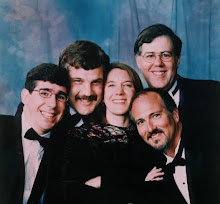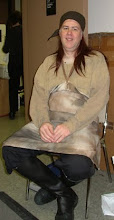Well the Met has done it again. The "Don Pasquale" which was broadcast this past weekend was really terrific. I liked the production, the direction, and the cast. The 4 principals were really outstanding and worked very well together. This was another first for me, so I cannot compare this production with any others. But I liked it a lot. The Met orchestra is always complemented on its versatility and certainly this was much in evidence in this production. The overture was performed so beautifully and throughout this orchestra gave a stylistic and beautiful reading of the score. Bravi in particular to the Piccolo and Principal Trumpet. There is nothing worse than having a piccolo player who plays out of tune - not that I expected that from a member of the Met orchestra (she wouldn't last I suspect if she couldn't play in tune) - but this piccolo player not only is spot on with intonation, but her ability to blend and be a part of the whole ensemble is really remarkable. I was really taken with her playing in the overture. And then the chorus, which is pretty incidental in this opera just about stole the show. I should mention that the patter song was really fun and very well done. I was glad it got an encore!
Ok - I want to reflect a little on the plot. I actually found the plot line a little bothersome - as entertaining as it is at times - Norina and Malatesta really are very cruel to poor old Don Pasquale. Anna Netrebko actually alluded to this in her interview between the scenes of Boris. She told the HD audience that for her taste the "joke" is a little cruel - and she is right. What was it about the early 1800's that found making fun of old men so funny. Now, I suppose Bartolo has it coming - he is greedy and mean (he actually lets us know that he is really only interested in Rosina's dowery). Ok, so he gets what he deserves. But Don Pasquale is (as a friend of mine put it)a "dopey, dishevelled, well-meaning old man." As wrong as he may be about Ernesto (and I am not so sure he is all that wrong about Ernesto who strikes me as a childish, immature and sulky free-loader) he seems to be trying to do the "right thing." He just doesn't deserve to be treated like that. I hope Malatesta pays off all those bills!
I particularly loved Anna Netrebko and John Del Carlo in the scene where she slaps him. It was a moment in this comedy that almost provoked tears. Del Carlo was truly hurt and despondent and Netrebko reacted with guilt, regret and sorrow to her own behavior. It was beautifully done and added a really human touch into what could easily (in the hands of a less competent director) be a cruel farce. (John Del Carlo deserves special praise for creating a very sympathetic character in Don Pasquale).
Of course making fun of old people is a great tradition in some kinds of musical theater. For Donizetti and the Opera Buffa crowd it was the old rich man on the prowl for a young girl who bests him. And later in the 19th century W.S. Gilbert seemed particularly drawn to making fun of older women with fading charms and bulging waistlines. The two most obvious and most offensive examples - in my view - are Ruth in "Pirates," and Lady Jane in "Patience." (We might include "Little Buttercup" from "Pinafore," but that plot has a fatal flaw in it which is directly related to this character. I would not include "Katisha" from "Mikado" mostly because she has other attributes to make her, well, an acquired taste - her bloodthirstyness comes to mind). Thanks to Sir Arthur Sullivan who finally put his foot down and refused to compose any more operas with Gilbert that had that kind of character in it. So finally we get a wonderful character like Dame Carruthers ("Yeoman") for whom Sullivan writes one of the best songs in the show ("When our Gallant Norman Foes").
So, should we bench "Pirates" or "Don Pasquale" for being politically incorrect. No. They are wonderful works which need to be performed. But we need to be up front about their compositional context and be honest about their problems. The way Del Carlo and Netrebko handled that scene is a good example of one way to deal with it as it raised the issue. I think there are ways of doing this with Ruth an Lady Jane as well (like, let's get rid of the silly bass fiddle for Lady Jane!) I don't have solutions, but the issue was raised for me in this Pasquale and I wanted to reflect on it a bit.
Still, if you missed it last Saturday be sure to catch the encore presentation or wait for it to run on PBS. It is a wonderful performance and a very entertaining production!
Carmen Aldrich
8 years ago


